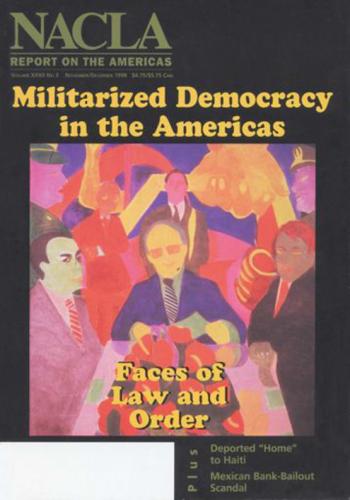Report
Every 15 days, residents of Solano, a small city in the jungles of southern Colombia, watch an army plane take off from a nearby air base and bomb the outskirts of town. The air attacks are part of a anti-drug operation that has been in place since rind1997.
When Guatemalan Bishop Juan Gerardi was found lying in a pool of blood this past April, his face beaten in with a piece of concrete, the crime scene quickly became a zoo. As the house filled with onlookers, investigators from the National Civilian Police and the Public Ministry walked through the blood and passed the apparent murder weapon from hand to hand.
Surrounded by lush green mountains on one side and the light blue ocean on the other, the neighborhood of São Conrado in Rio de Janeiro is home to the most expensive real estate in Brazil. The mayor of Rio, the governor of the state, and many of Brazil's elite have luxury apartments here overlooking the white sandy beaches.
On the evening of September 27, 1998, Border Patrol agents shot and killed a man who was attempting to cross the U.S.-Mexico border near San Ysidro, California. According to the federal agents at the scene, the victim and two other men ran from the immigration officers on the U.S. side of the border.
Despite the transitions from direct military rule in Latin America and the emergence of market democracies in nearly every country, many governments, in the face of the economic hardship and social dislocations caused by neoliberal restructuring, have adopted authoritarian measures and bolstered the state’s capacity for repression. Many of the region's new democracies remain marked by institutional legacies of military rule and persistant guardianship by military forces.

